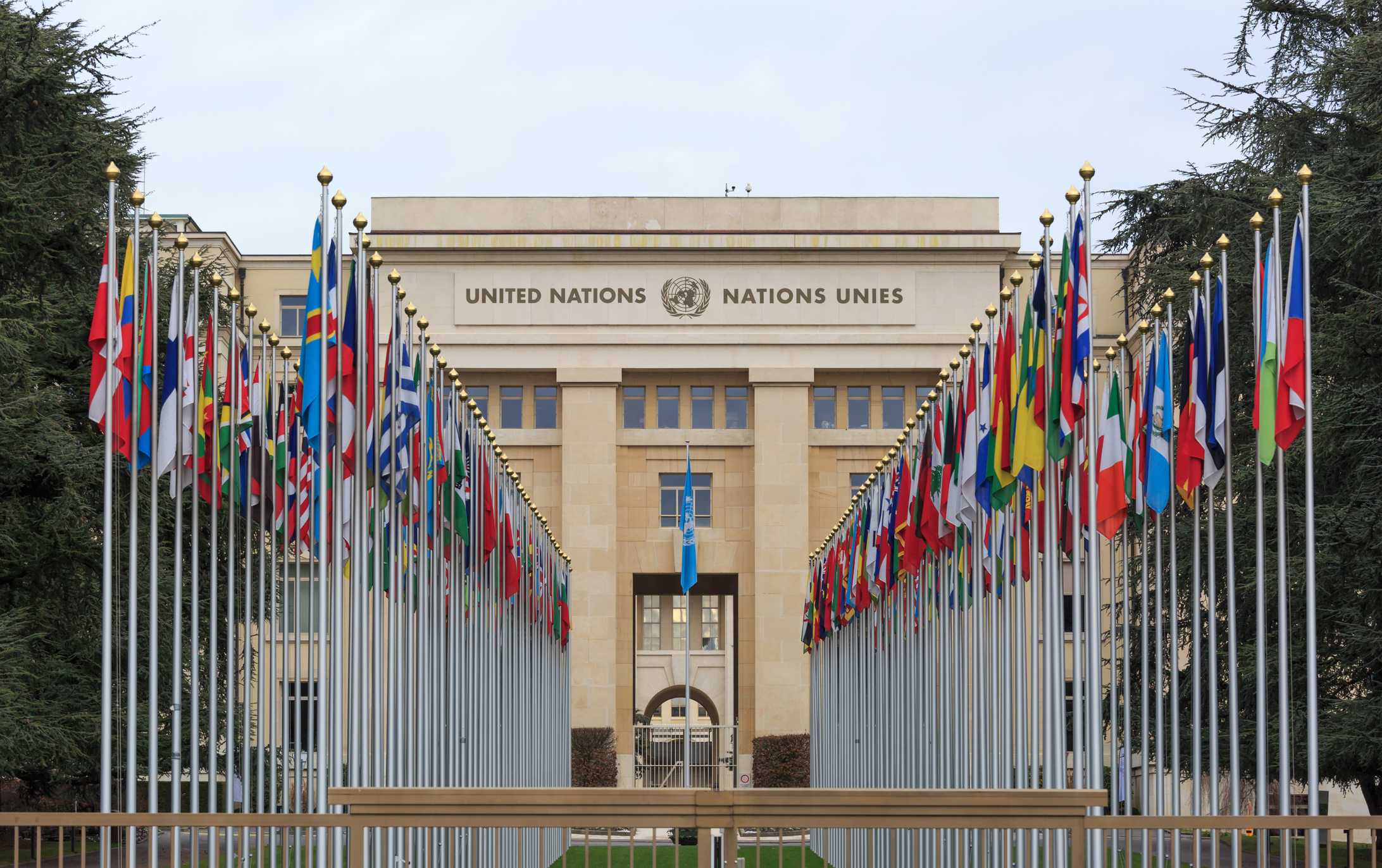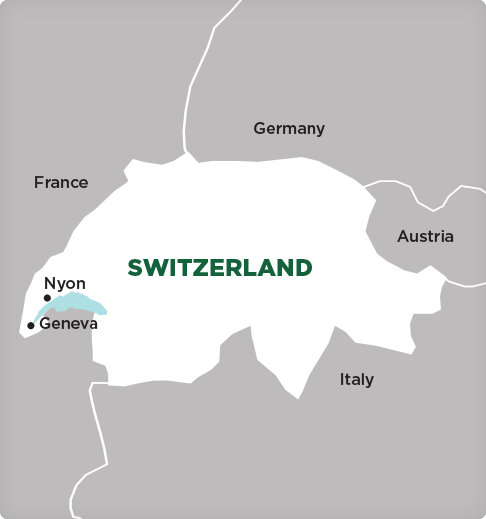Credits
6
Prerequisites
None
Language of Study
French
Courses taught in
English
Dates
Jun 2 – Jul 15
Program Countries
Switzerland
Program Base
Geneva
Visa
Varies
Critical Global Issue of Study
Geopolitics & Power

Immerse yourself in the world of multilateral diplomacy and learn the art of conflict resolution and prevention in an international arena.
6
None
French
English
Jun 2 – Jul 15
Switzerland
Geneva
Varies
Geopolitics & Power
Build the skills and knowledge required for multilateral diplomacy at the center of the action: Geneva, where you’ll learn from top academics and experts at research institutes, United Nations agencies and other nongovernmental organizations. While immersed in the city of international diplomacy, you’ll enjoy Francophone culture and the summer splendors of Lake Geneva, such as swimming, boating, and picnicking. It’s a great opportunity to build your international network and make contacts with top experts on the use of multilateral diplomacy in conflict resolution and prevention, international humanitarian law, managing complex emergencies, and migration.
None required, but students with at least basic French proficiency will be at a linguistic advantage.


Visit the International Committee of the Red Cross to learn about their activities, and attend briefings from ICRC experts, one on the ICRC and its principled humanitarian action, and one on international humanitarian Law.
Visit the World Trade Organization (WTO) to learn how it functions and the challenges it is facing.
Attend briefings of the UN Environment Program (UNEP).
Take a guided tour of the Palais des Nation and its library.
Please note that SIT will make every effort to maintain its programs as described. To respond to emergent situations, however, SIT may have to change or cancel programs.
Upon successful completion of the program, students will be able to:
The following syllabi are representative of this program. Because courses develop and change over time to take advantage of dynamic learning opportunities, actual course content will vary from term to term.
The syllabi can be useful for students, faculty, and study abroad offices in assessing credit transfer. Read more about credit transfer.
Beginning French I – syllabus
(FREN1003 / 3 credits)
Beginning French II – syllabus
(FREN1503 / 3 credits)
Intermediate French I – syllabus
(FREN2003 / 3 credits)
Intermediate French II – syllabus
(FREN2503 / 3 credits)
Advanced French I – syllabus
(FREN3003 / 3 credits)
This course has an emphasis on speaking and comprehension skills through classroom and field instruction. Students are placed in intensive beginning, intermediate, or advanced classes based on in-country evaluation, including oral proficiency testing.
Students may choose to take the International Studies and Multilateral Diplomacy seminar at either the undergraduate or graduate level
International Studies and Multilateral Diplomacy – syllabus
(EURO3000 / 3 credits)
From its base in Geneva, this course provides an in-depth examination of the evolving nature of diplomacy. It considers the impact of the profound changes affecting the contemporary international system with respect to the concept of diplomacy and evaluates how the practice of diplomacy can be adapted to global, regional and local levels. The course also examines the approaches of humanitarian, economic, and environmental diplomacy. It applies traditional and non-traditional approaches to diplomacy taking into consideration the strategies of both state and non-state actors, international and regional organizations. A major emphasis is made on the UN system in a multilateral diplomatic perspective. At the end of the course, each student will produce an original academic paper in their field of interest in international studies
OR
International Studies and Multilateral Diplomacy Seminar Graduate Level – syllabus
(EURO5000 / 3 credits)
From its base in Geneva, this course provides an in-depth examination of the evolving nature of diplomacy. It considers the impact of the profound changes affecting the contemporary international system with respect to the concept of diplomacy and evaluates how the practice of diplomacy can be adapted to global, regional and local levels. The course also examines the approaches of humanitarian, economic, and environmental diplomacy. It applies traditional and non-traditional approaches to diplomacy taking into consideration the strategies of both state and non-state actors, international and regional organizations. A major emphasis is on the UN system in a multilateral diplomatic perspective. At the end of the course, each student will produce an original academic paper in their field of interest in international studies.
In the latter half of the program as part of the seminar, you will conduct an independent project on a subject related to international studies and multilateral diplomacy in order to examine in depth a topic of particular interest to you.
Past research projects have included:



SIT Study Abroad is committed to ensuring that international education is within reach for all students. We believe in the transformative power of immersive, intercultural experiences and are dedicated to supporting students in their educational journey.
See All Costs
A critical step in preparing for your study abroad program is planning how you will maintain your health and wellbeing. Please review the following information carefully and contact [email protected] with any questions or concerns.
Learn More
Depending on your passport of origin, you may need a visa for this program. Please contact your admissions officer for more information.